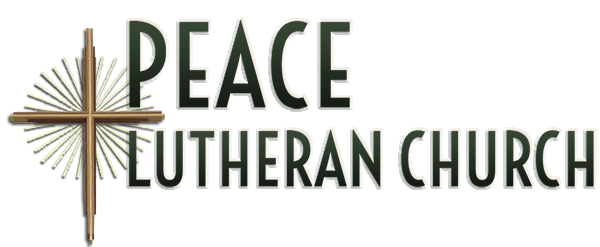Our ‘Easter Moment’ means working through grief, fear, doubt
1When the abbath was over, Mary Magdalene, and Mary the mother of James, and Salome bought spices, so that they might go and anoint [Jesus’ body]. 2And very early on the first day of the week, when the sun had risen, they went to the tomb. 3They had been saying to one another, “Who will roll away the stone for us from the entrance to the tomb?” 4When they looked up, they saw that the stone, which was very large, had already been rolled back. 5As they entered the tomb, they saw a young man, dressed in a white robe, sitting on the right side; and they were alarmed. 6But he said to them, “Do not be alarmed; you are looking for Jesus of Nazareth, who was crucified. He has been raised; he is not here. Look, there is the place they laid him. 7But go, tell his disciples and Peter that he is going ahead of you to Galilee; there you will see him, just as he told you.” 8So they went out and fled from the tomb, for terror and amazement had seized them; and they said nothing to anyone, for they were afraid. Mark 16:1-8
There were no shouts of Alleluia that first Easter morning… at least none that any of the gospel writers tell us about. The Gospel accounts tell us about women coming to the tomb in the dark, or in that strange half-light just before dawn. While the different accounts don’t agree about which women or how many there were, they do agree about this: The women came to mourn. In Luke, they even bring spices for embalming. Two days before, they had watched the death of their master with their own eyes. All of them had seen that last, feeble gasp as his body gave up its struggle to live. They had all seen his lifeless body pierced by a soldier’s sword, then lowered, limp and unresisting, to be carried away for burial.
Everyone who came to the tomb in the early hours of the dawning day came expecting to encounter death and instead encountered a mystery: an empty tomb, a stone rolled away, angels, messengers! And grief is replaced with confusion, disorientation and fear.
Matthew’s account says the women were afraid. Luke says they were terrified — probably the closest to the truth! John says Mary was weeping, but it isn’t much of a stretch to believe that the tears were a mixture of grief and fear. And in the Gospel of Mark, which we read this morning, we’re told they were “alarmed.” In every account of that first Easter day, the women have not found what they expected: Not a sealed tomb, but an empty one, and a cryptic message that Jesus has been raised.
Of course, with time, the physical presence of Jesus dissolves the fear and the grief and the joy of celebration takes over. But that isn’t the way the day begins.
Wow… thanks a lot, Pastor. We came to church on Easter Sunday expecting you to fill us with joy at the good news and you start off with death, grief and fear. Way to go.
Well, stay with me for a bit.
What we miss at Easter
I’ve been a part of Peace long enough to have shared celebrations and joys with you; but I’ve also been around long enough to know that many of you have gone through some tough times. Some of you sitting here this morning are still grieving the death of your spouse and feeling the emptiness of newly being alone. And some of you still carry the ache of that loss even though you have learned, with time, to bear it. Some of us have lost children to death, and our grief carries the sense of injustice in a life ended too soon.
Some of you have gone through the ending of a marriage- with the loss of hopes and dreams, the sense of failure, perhaps the sharp wound of betrayal.
Some of you are dealing with changes in your health or mobility or the loss of your job- and each of those brings its own kind of grief, for the loss of the person you have always known yourself to be, learning to be somehow different.
Many here are grieving the loss of the church they have always known and are fearful about what the future will bring. Many familiar faces are gone- and it just isn’t the same anymore.
The truth is, we often miss the real power of Easter because we skip over the grief and the sorrow and the fear- and the death. We jump straight into the Alleluias! As though the grief and the sorrow and the fear don’t exist; as though the death didn’t really happen.
But resurrection can only come in the wake of death.
For Mary, this day began with gut-wrenching grief. I don’t doubt she had been crying on and off for 2 full days. She came to the tomb to mourn, and found the stone rolled away and the body gone. Grief was now mixed with anger and fear.
In the account shared in the Gospel of Mark, the original ending is abrupt and leaves much untold. After the portion we read, there is only this simple statement:
And all that had been commanded them they told briefly to those around Peter. And afterwards Jesus himself sent out through them, from east to west, the sacred and imperishable proclamation of eternal salvation. Mark 16:8b
As much as we love to hear about Jesus’ appearances after his resurrection, I believe that Mark’s account is somehow the best one for us. Because we’ve never encountered Jesus face-to face. We rely on the message shared with us by others.
For us, the truth of the resurrection is a matter of faith.
For each of Jesus’ followers, the Easter moment came at a different time, in a different way; and only after working through the grief and doubt and fear. But it came as surely as Jesus had promised.
The Faith Struggle
So for us. For some of us it will be more difficult to summon the joy because we’re still struggling with grief and suffering and doubt and fear. We live in a world where violence has destroyed the lives of many, even becoming a too-common occurrence on our streets and in the halls of our schools.
But we have hope; because we believe the message that has been shared with us. We believe that the promises of Jesus are promises we can trust. When we find ourselves weeping out of grief or doubt or fear, we remember that the tomb was empty, a sign that God holds the power of life that overcomes death and sorrow and suffering.
And while we have never seen Jesus the way his disciples did, he comes to us, as he promised, in this precious meal of bread and wine.
If we come to this table open to experiencing Jesus’ presence in whatever way he chooses to reveal himself, we are making our own peculiar journey, not quite knowing what we will find, but trusting the promise that death will not have the final word; that we will encounter life in a way we never expected.
So come on this glorious day to feast at the Lord’s table, as we recall the moment when the world was changed forever by an empty tomb.
For a brief moment in time, give whatever burden you may be carrying over to God, and shout with joy:
Christ is risen!
(Congregation responds:) He is risen indeed! Alleluia!


